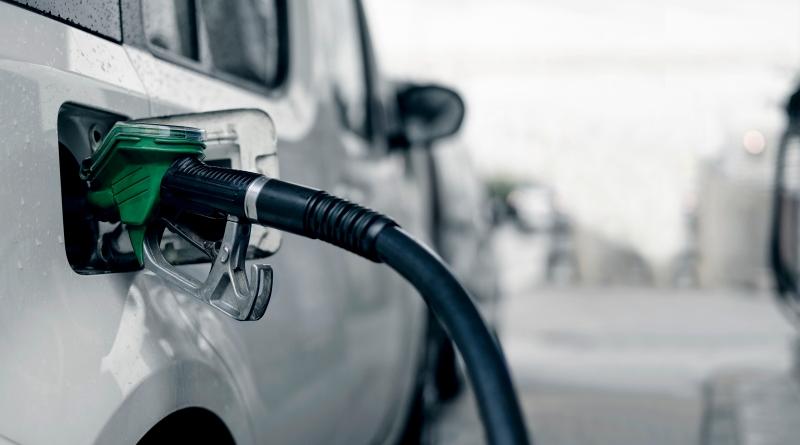EU renewable energy deal backs biofuels to cut transport emissions

The amount of biofuels in Europe’s transport sector is expected to increase after the European Parliament and EU countries agreed in the early hours of Thursday (30 March) on new rules to spur the use of renewable energy across the bloc.
Under the agreement on the updated Renewable Energy Directive, targets to cut transport sector carbon emissions were strengthened, with member states given a choice of how to meet the revised goal.
EU countries can either reduce the greenhouse gas intensity in the transport sector by 14.5% by 2030, or opt for a binding target of at least a 29% share of renewables within the final consumption of energy in transport by the same date.
The addition of the greenhouse gas intensity goal was necessary to get the deal over the line, as it recognised the situation of countries such as France, which are largely supplied by low-carbon nuclear energy.
The volume of second-generation biofuels made from used cooking oil and certain animal fats, as listed in Part B of Annex IX of the directive, can also be ramped up, with the introduction of “double flexibility” for the current 1.7% cap.
It is expected that the list of Part B feedstocks will be expanded beyond used cooking oil and animal lipids in the coming months, as part of a biannual revision of the annex.
While member states are free to use as much biofuel from Part B in their transport sector as they wish, it cannot be counted towards their renewable energy targets beyond a 1.7% share at present.
Under the agreement, member states can apply to the Commission to modify the 1.7% limit, and the Commission is empowered to raise this cap when new feedstocks are added to Annex IX.
A multiplier of two, under which second-generation biofuels can be double counted towards renewable energy targets, was also included in the law.
Multipliers are used to incentivise the purchase of potentially costlier low-carbon fuels by making them more advantageous to meet policy aims.
According to Angel Alvarez Alberdi, the Secretary General of the European Waste-based & Advanced Biofuels Association (EWABA), the updated Renewable Energy Directive is a good deal for second-generation biofuel companies as it “will enable further growth in the industry”.
The agreement will additionally see the targets for advanced biofuels, set out in Part A of Annex IX, and hydrogen-derived synthetic fuels, known as Renewable Fuels of Non-Biological Origin or RFNBOs, merged.
Collectively, advanced biofuels and RFNBOs must make up 5.5% of the share of renewable energies supplied to the transport sector. Within this target, 1% must comprise RFNBOs by 2030.
Trade association the Advanced Biofuels Coalition LSB criticised the decision, arguing that it will increase regulatory uncertainty for investors.
“Advanced Biofuels and RFNBOs have different cost levels for production. Therefore, differentiated submandates/sub-shares are necessary to guarantee their development,” the trade association warned lawmakers in a letter ahead of the vote.
No soy ban
In the lead-up to the negotiations, activists had strongly pushed for soy to be banned as a feedstock for conventional biofuels, on the basis that demand for the crop is responsible for driving deforestation and habitat destruction abroad.
Despite their campaign, the provisional agreement failed to shift the threshold under which certain biofuel crops must be phased out, leaving soy as a legal option.
Activists’ push to bring forward the phase-out date for palm oil as a biofuel source, currently set at 2030, also failed to make it into the final text.
While the European Parliament backed a sooner phase-out date, this was jettisoned following requests from member states.
The agreement does, however, open the door for a further review of the criteria to assess the negative impacts of certain crops, including soy.
“Today, the EU chose to keep fuelling cars with grains, sugar and vegetable oil. That means that Europe will continue to waste land that could feed 120 million people daily,” Julie Bos, Oxfam’s EU climate justice expert, said in a statement.
“The EU’s choice is also deadly for the planet. European policymakers are perpetuating a false climate solution by promoting the use of biofuels,” she added.
Thursday’s deal represents an informal agreement between the bloc’s co-legislators, the European Parliament and Council. The deal will now need to be formally agreed upon by both institutions before becoming law, which is usually considered a formality. This is expected to take place after summer.
Sean Goulding Carroll | EURACTIV.com
COVER PHOTO: EU countries can either reduce the greenhouse gas intensity in the transport sector by 14.5% by 2030, or opt for a binding target of at least a 29% share of renewables within the final consumption of energy in transport by the same date. [Lightspruch/Shutterstock.com]





